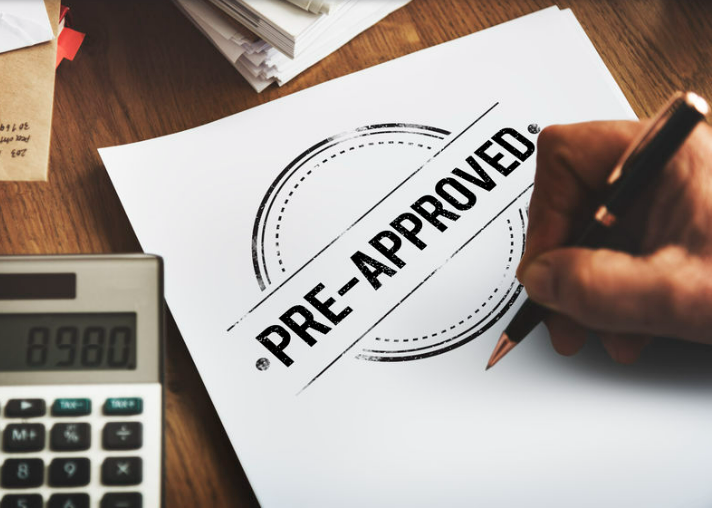A Guide to Get Preapproved for a Mortgage

For most buyers, obtaining mortgage preapproval is crucial. It provides a clear understanding of how much you can borrow and demonstrates to sellers that you are a serious buyer.
Although the U.S. housing market began to slow in 2024, it remains a seller’s market with high prices and low inventory. In this competitive environment, having a preapproval can give you an edge over other buyers when making offers on homes.
What is mortgage preapproval?
Mortgage preapproval is a document or letter from a lender indicating how much money you are eligible to borrow for purchasing a home. This preapproval is based on a review of your financial profile, including your income, savings and investment assets, and outstanding debts.
As part of the preapproval process, the lender conducts a hard credit inquiry to assess your financial health. Using this information, the lender estimates the amount of home you can afford.
Preapproval signifies that you qualify for a mortgage and that the lender is ready to proceed with the loan, provided the home you choose meets specific criteria and there are no significant changes to your financial situation before you finalize your mortgage application.
Mortgage preapproval vs. prequalification
Mortgage Preapproval vs. Prequalification
While mortgage preapproval and prequalification may sound similar, they have key differences:
- Prequalification: This is a more informal process that gives you an estimate of the loan amount you might qualify for. Lenders typically perform a soft credit check and rely on the financial information you provide without verification. Since it’s based on unverified data, there’s no commitment from the lender, and a prequalification letter doesn’t hold much weight with sellers.
- Preapproval: This is a more thorough process where the lender verifies your financial information and performs a hard credit inquiry. A preapproval letter shows that you are eligible for a specific loan amount, making it more valuable when making an offer on a home. It signals to sellers that you’re a serious buyer with verified finances.
In essence, preapproval offers a more accurate indication of your borrowing power compared to prequalification.
Mortgage preapproval vs. mortgage final approval
Preapproval and final approval also differ:
- Preapproval: This step gives you a preliminary nod that you qualify for a mortgage based on a high-level review of your finances. However, it doesn’t guarantee the loan.
- Final Approval: This is the final step, where the lender fully authorizes your loan. They thoroughly review your finances and the home you’re purchasing, verifying employment, income, and property details. During this underwriting process, unexpected issues may arise that could affect your loan terms or disqualify you altogether.
How to get preapproved for a home loan
You can often start the preapproval process online or by contacting a lender over the phone. In-person meetings with a local bank are also an option. Here’s how to get preapproved:
1. Choose a mortgage lender
Shop around for the best rates and fees. Compare different lenders by reading reviews and applying to multiple companies to see the best mortgage offers.
2. Gather personal and financial documents
For preapproval, you’ll need to provide documentation about your income, assets, and debts, including:
- Pay stubs from the past 30 days
- W-2s from the past two years
- Proof of additional income (e.g., commissions, child support)
- Recent account statements (checking, CDs, retirement accounts)
- Documentation of existing loans
- Gift letters for any down payment contributions
- Court records (if applicable, e.g., divorce, bankruptcy)
- ID (driver’s license or passport) for identity verification
Self-employed applicants may need additional documentation, such as profit and loss statements or tax returns, and may undergo an income audit.
3. Check your credit report
Before your lender conducts a hard credit check, it’s important to review your credit report for any errors that could affect your mortgage preapproval or interest rate. By law, you’re entitled to free copies of your credit reports from each credit bureau once per week, available through AnnualCreditReport.com.
For a conventional mortgage, most lenders require a minimum credit score of 620, though this may vary. FHA loans backed by the government require a minimum score of 580 with a 3.5 percent down payment. Other government-backed loans, like VA and USDA loans, don’t have federally mandated minimum credit scores, leaving it up to the lender to decide. Keep in mind, the higher your credit score, the more favorable your mortgage rates and terms will be.
4. Get preapproved
Lenders generally offer flexibility for preapproval applications, allowing you to complete the process either in person or online.
During this stage, lenders often apply the “28/36” qualifying ratio to estimate the monthly mortgage payment you can afford. This means they typically prefer that your mortgage payment doesn’t exceed 28 percent of your gross monthly income and that your total debt payments (mortgage plus other debts like credit cards and car loans) don’t surpass 36 percent of your income.
As part of the preapproval process, your lender will conduct a hard inquiry into your credit to evaluate factors such as your credit utilization ratio (the amount of credit you’re using compared to your total credit limit). A lower utilization ratio increases your chances of preapproval.
Although a hard inquiry may temporarily reduce your credit score by a few points, the effect diminishes over time. Multiple hard inquiries for mortgage preapprovals made within a 45-day window are treated as a single inquiry, so you can compare offers without significantly impacting your credit score.
If your preapproval is successful, the lender will issue a preapproval letter. This document outlines the loan amount, maximum home price, loan type, terms, and the expiration date of your preapproval.
Benefits of a getting preapproved for a home loan

Whether you’re in a buyer’s or seller’s market, getting preapproved for a mortgage is crucial when purchasing a home. Here’s why:
- Credibility with Sellers: A preapproval demonstrates to sellers that you’re a serious buyer who is likely to secure financing, making your offer more attractive.
- Targeted Home Search: Preapproval allows you to focus your search on homes within your budget, helping you avoid wasting time on properties you can’t afford.
- Rate Comparison: Preapproval with multiple lenders lets you compare offers, potentially helping you secure a lower mortgage rate, saving you thousands over the loan term.
Mortgage preapproval timeline
Starting the mortgage preapproval process early and staying organized can help speed things up. The sooner you’re preapproved, the sooner you can begin your serious home search
How far in advance should you get preapproved for a mortgage?
The ideal time to get preapproved is before you begin looking at homes. Without preapproval, you may miss out on a home you love, as the preapproval process can take time. Additionally, sellers often expect a preapproval letter as part of an offer, especially before entering into a contract. Once you’re committed to buying and your finances are in order, it’s time to apply for preapproval from a trusted lender.
How long does it take to get preapproved?
Preapproval timelines vary depending on the lender and your qualifications. In some cases, you can receive preapproval within one business day, but it can take a few days or up to a week, especially if additional income verification or other checks are needed. If your paperwork is in order and your credit is strong, the process can be quicker.
How long does a preapproval last?
Most preapprovals last for 90 days, though some lenders may offer 30- or 60-day preapprovals. If your preapproval expires, renewal is typically straightforward. The lender will reassess your credit and finances to ensure nothing significant has changed since the initial approval. Keep in mind, renewing a preapproval may trigger another hard credit pull, which could lower your credit score by a few points.
What to do after you are preapproved
Once you have a preapproval letter, you can begin your home search with confidence, knowing that you are financially prepared. However, preapproval letters are only valid for a limited time, so don’t delay your search. If your financial situation changes or the home’s appraisal comes in lower than expected, your final mortgage approval could be affected.
After you find a home and have an accepted offer, you’ll need to officially apply for the mortgage. The approval process can take several weeks as your lender reviews your finances and the home’s appraisal.
During this period, keep an eye on mortgage rates since preapproval doesn’t lock in your rate until you complete a formal mortgage application.
What to do if you are denied for mortgage preapproval
If you’re denied for preapproval, ask the lender for the specific reasons. If the issue is fixable, such as an error on your credit report, address it immediately and try again once it’s resolved.
If the denial is due to a low credit score or other financial challenges, work to improve those areas. This could mean paying down debt, making on-time payments, or increasing your income to lower your debt-to-income ratio.
If you don’t meet one lender’s criteria, consider approaching a more flexible lender or a local bank or credit union where you have an existing relationship. These institutions may be more willing to work with you on a preapproval.